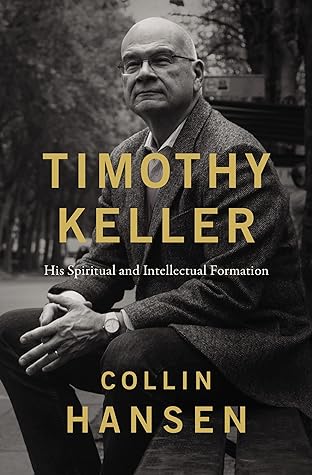More on this book
Community
Kindle Notes & Highlights
Read between
August 23 - November 7, 2023
missionary encounters that produce social change depend on grace, not on the rules of religion.
Only the gospel can unite tolerance and justice.
If Christians hope to evangelize their neighbors, they can’t ignore or denounce them.
These modern beliefs—that we must all be committed to equal rights and justice but that there are no God-given moral absolutes—undermine each other.
one of the main themes of the biblical story and stories is that even some of the ablest human beings who have ever lived, such as Abraham and David, could not rise above the brutality of their own cultures nor the self-centeredness of their own hearts. But by clinging to the wondrous promise that God’s grace is given to moral failures, they triumphed.
If the gospel changes you, you will never see anybody else, anywhere else, as being the enemy, the real problem with the world.
their views on the gospel or theology and more on their politics. Churches that aligned with the blue team were tempted to ignore the vertical dimensions of personal conversion. And churches that aligned with the red team were tempted to ignore the horizontal dimensions of biblical justice and not evangelize outside their political tribe. Far from uniting to share Jesus with a world desperate for justice yet unable to even define it, American Christians had largely conformed by 2020 with the partisan battle lines.
On the one hand, Dinesen exposes the joylessness of Christian obedience apart from the gospel of grace, which does more than save us from sin for eternity. Grace also prepares us to receive God’s gifts here and now. On the one hand, the gourmet feast symbolizes a kind of spiritual revival as the sectarians overcome their reluctance to enjoy the bounty of God’s creation.
three ways to live before God: the aesthetic, the ethical, and the spiritual.
We could summarize the aesthetic approach as, “Follow your dreams.”
The ethical says, “Do y...
This highlight has been truncated due to consecutive passage length restrictions.
According to Kierkegaard, just about everyone looks for happiness either through duty or desire. Sometimes people switch between the two.
A few hours scattered between teaching, singing, and chatting among other Christians can’t compete with the 24/7 digital deluge.
“Our models of theological formation give us a firm grasp of biblical doctrine, which is indispensable,” Keller wrote, “but they fail to deconstruct culture’s beliefs and provide better, Christian answers to the questions of the late modern human heart.”62
If some Christians argue that we need more cultural analysis, and others insist that we need more gospel preaching, Keller answered that we need both.
If distrust of Christian community led him to crisis, Christian community also led him to faith. Keller wrote in The Prodigal God that “there is no way you will be able to grow spiritually apart from a deep involvement in a community of other believers. You can’t live the Christian life without a band of Christian friends, without a family of believers in which you find a place.”1


